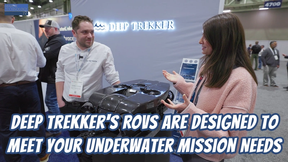While the news pertaining to discoveries and new field developments is highly encouraging, the bottleneck created by logistics needs for the pre-salt and lack of specialized workforce in various areas of the O&G industry is hindering a faster growth rate for the oil and shipbuilding industry in Brazil.
Petrobras was recently upgraded to being the fourth largest energy company in the world, mostly due to the pre-salt fields and there is little doubt in the market that the company can continue climbing this ladder, possibly to the very top, in another decade.
Unfortunately it is not all roses, as serious logistics and workforce issues continue plaguing the nation. The newly elected Brazilian president, the first woman to lead the nation as a republic (Princes Isabel from Portugal ruled Brazil way back in the monarchy), will need to address these issues promptly or risk having a serious decrease in the country´s growth rate.
Petrobras studies indicate that only for the pre-salt, they will need to build another three ports and three airports and this is only for the national operator. At least another two ports will be needed for other operators developing pre-salt plays.
Extensive underwater pipelines will need to be laid from the pre-salt plays to offshore distribution centers and to the coast, along with thousands of miles of flowlines, umbilicals and risers, to connect the wells to FPSO´s and also control the subsea wells and manifolds. Extensive road and rail construction will also need to be done onshore as the current situation in term of these modes of transportation can be considered insufficient.
Although massive investments in are being made in manpower training, it will take many years to get to the necessary numbers of workers in various fields, which are needed continue growing and get all the upstream and downstream projects operating efficiently. In the southeast and south Brazilian regions this problem is being slightly attenuated due to higher education levels in these regions but in the northeast, north and western regions, this problem is truly massive and will take longer to remedy. As it is, most offshore projects in the northeast are having to bring in large numbers of trained workers from other regions just to get going. The good thing about the national content policy, is that once this hurdle is past, there will be a substantial amount of specialized workers in the market, ready to teach the next generations and keep the market well supplied of workers.
Claudio Paschoa
Paschoa, Claudio
Claudio Paschoa is Marine Technology Reporter's correspondent in Brazil.
Email: [email protected]









 December 2025
December 2025



